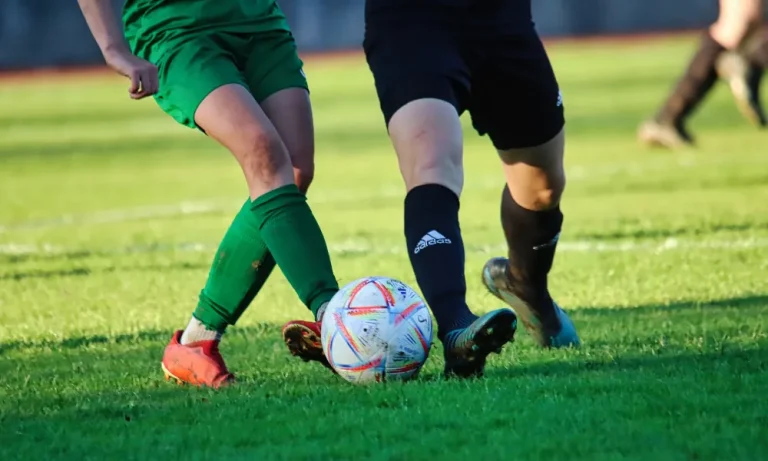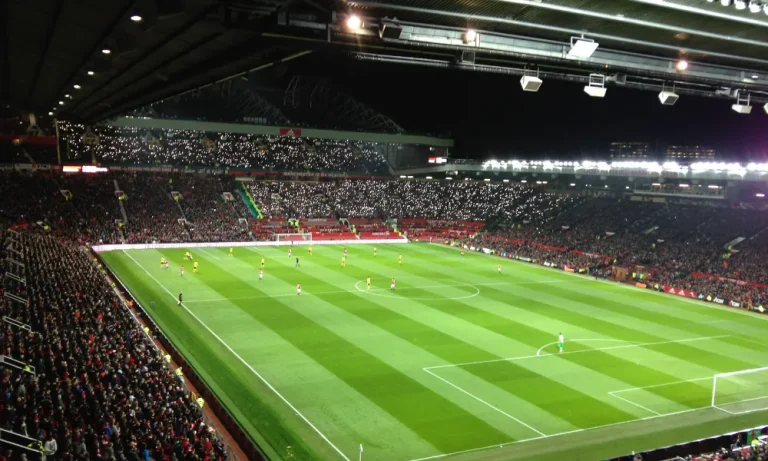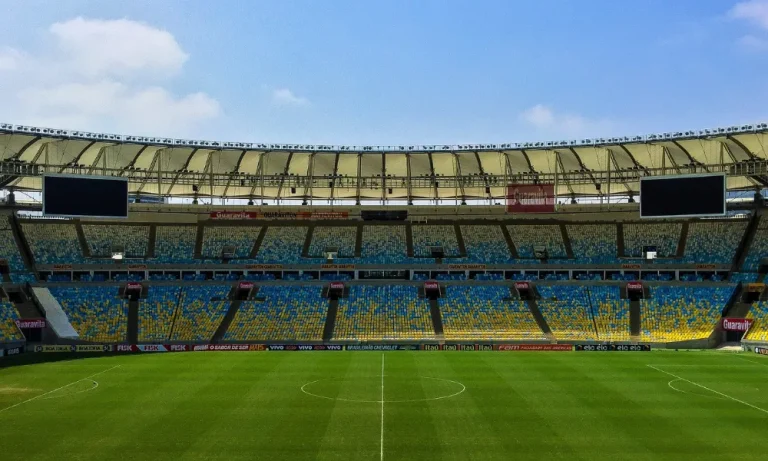Why do Teams Decline Penalties in NFL Football?
Are you a fan of NFL football? Have you ever wondered why teams sometimes decline penalties? It’s a strategic move that can significantly impact the outcome of a game. In this blog post, we will delve into the intriguing world of penalties in NFL football and explore the reasons behind teams choosing to decline them. So, grab your favorite game-day snack and join us as we unravel the mystery behind why teams decline penalties in NFL football.
What is a penalty in NFL football?
In NFL football, penalties play a crucial role in maintaining fairness and ensuring that the game is played within the rules. A penalty is a consequence imposed on a team or player for violating the established rules of the game. It serves as a deterrent for actions that may give an unfair advantage or compromise player safety.
There are various types of penalties in NFL football, each with its own specific consequences. For instance, a holding penalty is called when an offensive player impedes the progress of a defensive player by grabbing or restraining them. This results in a loss of yardage for the offending team. On the other hand, a pass interference penalty occurs when a defensive player interferes with the receiver’s ability to catch the ball, resulting in an automatic first down for the offensive team.
The consequences of penalties can vary depending on the severity and type of infraction. Some penalties result in a loss of yardage, pushing the offending team further away from the end zone. Others, such as personal fouls, can result in ejections or fines for players. It’s important for teams to understand the different penalties and their consequences to avoid costly mistakes and maintain a fair and competitive game.
Understanding the options after a penalty is called
When a penalty is called in NFL football, the non-offending team has three options to choose from: accept, decline, or offsetting penalties. Each option has its own implications and strategic considerations.
If the non-offending team chooses to accept the penalty, it means they agree to the consequences imposed on the offending team. This typically results in a loss of yardage for the offending team, pushing them farther from their goal. However, accepting a penalty can be beneficial if the yardage loss puts the offending team at a disadvantageous position, such as creating a longer distance for a first down.
On the other hand, the non-offending team may decide to decline the penalty. By declining, they essentially reject the consequences of the penalty and the play stands as if no penalty was called. This option is often chosen when the penalty yardage is minimal or when accepting the penalty would give the offending team another opportunity to execute a potentially more successful play.
Sometimes, multiple penalties can be called simultaneously, resulting in offsetting penalties. In such cases, both teams are penalized, but the play is replayed without any yardage consequences. This option is typically chosen when the penalties committed by both teams are of equal significance.
The decision to accept, decline, or choose offsetting penalties depends on various factors. Teams consider the current game situation, such as the score, time remaining, and field position. They also assess the down and distance to determine if accepting or declining the penalty would be more advantageous for their offensive or defensive strategy.
When is it beneficial to decline a penalty?
Declining a penalty in NFL football can be advantageous in certain situations. It’s important to analyze the game scenario and consider the potential strategic advantages before making a decision.
One scenario where declining a penalty is beneficial is when the penalty yardage is minimal and accepting the penalty would result in a replay of the down. For example, if the non-offending team is facing a third down and inches to go for a first down, declining a penalty that would result in a loss of yardage may be a wise choice. By declining, the team maintains their current down and distance, increasing their chances of converting the next play into a successful first down.
Another situation where declining a penalty can give a team a strategic advantage is when the penalty committed by the opposing team would grant them another opportunity to execute a potentially more successful play. For instance, if the offense throws an incomplete pass on a crucial down, and the defense commits a penalty that would result in a replay of the down, the offense may choose to decline the penalty. By doing so, they avoid giving the defense another chance to disrupt their play and potentially force a turnover.
Factors to consider when deciding to decline a penalty
When deciding whether to decline a penalty in NFL football, teams take into account various factors to make an informed decision. These factors include the game situation, score, down, and distance, which play a crucial role in determining the strategic advantage of declining a penalty.
The game situation is an essential factor to consider. If the team is trailing and needs to score quickly, declining a penalty that would result in a replay of the down may be unfavorable. In this scenario, accepting the penalty and gaining additional yardage could help the team move closer to their goal and increase their chances of scoring.
The score also influences the decision-making process. If the team is comfortably ahead and declining a penalty would maintain their current down and distance, it might be a prudent choice to avoid giving the opposing team an opportunity to regroup and potentially capitalize on a replayed down.
The down and distance are critical factors to evaluate. If the team is close to achieving a first down, declining a penalty that would reset the down and result in a replay might be unwise. By maintaining the current down and distance, the team keeps the momentum and increases their likelihood of converting the next play into a successful first down.
Impact of declining penalties on field position
The decision to decline a penalty in NFL football can have a significant impact on a team’s field position. By strategically declining a penalty, teams can potentially improve their field position and gain an advantage over the opposing team.
There are scenarios where declining a penalty can result in a more favorable field position. For instance, if the offense commits a penalty deep in their own territory, accepting the penalty would move them even further back. In such cases, declining the penalty allows the offense to maintain their current field position and avoid worsening their situation.
Another example is when the opposing team commits a penalty that would result in a replay of the down. If accepting the penalty would place the offense in a difficult field position, declining it could be a better option. By declining, the offense can maintain their current field position and potentially capitalize on the next play to gain more yards or score.
Psychological impact on the opposing team
When a team chooses to decline a penalty in NFL football, it can have a significant psychological impact on the opposing team. The decision to decline a penalty can disrupt the rhythm and momentum of the opposing team, potentially giving the declining team a psychological advantage.
Declining a penalty can disrupt the rhythm of the opposing team by interrupting their planned sequence of plays. When a penalty is declined, the opposing team may have been expecting a replay of the down, giving them an opportunity to adjust their defensive or offensive strategy. However, by declining the penalty, the team disrupts this expectation and forces the opposing team to quickly readjust their plans on the fly, potentially leading to mistakes or confusion.
Furthermore, declining a penalty can also impact the momentum of the opposing team. When a penalty is declined, it can deflate the morale and confidence of the opposing team. They may feel frustrated or demoralized, as their penalty was essentially rendered insignificant. This psychological blow can have a ripple effect on the team’s performance, potentially leading to decreased focus, increased mistakes, or a loss of momentum.
Case studies and examples
In order to gain a deeper understanding of the impact of declining penalties on field position and the strategies employed by successful teams, let’s examine some specific NFL games where teams made the decision to decline penalties.
One notable case study is the Super Bowl XLIX matchup between the New England Patriots and the Seattle Seahawks. In the second quarter, the Patriots declined a holding penalty against the Seahawks, choosing to maintain their current field position. This decision proved crucial as it prevented the Seahawks from having another chance at scoring and allowed the Patriots to maintain their defensive momentum, ultimately leading to a victory.
Another example is a regular-season game between the Kansas City Chiefs and the Los Angeles Chargers. In the fourth quarter, the Chiefs declined an offensive holding penalty by the Chargers, which would have resulted in a replay of the down. By declining the penalty, the Chiefs maintained their field position and were able to execute a successful drive, resulting in a touchdown and a win.
These case studies highlight the strategic thinking involved in declining penalties. Successful teams carefully evaluate the potential consequences, considering factors such as field position, momentum, and the capabilities of their own team and the opposing team. By making calculated decisions, teams can maximize their chances of success and gain a competitive edge.
Technical FAQs: Why do teams decline penalties in NFL football?
Why would a team choose to decline a penalty?
Teams may decline a penalty to maintain their current field position or disrupt the rhythm of the opposing team.
What happens when a team declines a penalty?
When a team declines a penalty, the penalty is essentially ignored, and the opposing team retains the result of the previous play.
Can declining a penalty benefit the declining team?
Yes, declining a penalty can benefit the declining team by preserving their advantageous field position or maintaining their defensive momentum.
Does declining a penalty affect the opposing team psychologically?
Yes, declining a penalty can have a psychological impact on the opposing team, disrupting their rhythm and potentially deflating their morale.
Are there any strategic considerations involved in declining penalties?
Yes, teams strategically evaluate factors like field position, momentum, and the capabilities of both teams before deciding whether to decline a penalty.
Conclusion
In conclusion, understanding the strategic decision-making behind declining penalties in NFL football is crucial for both players and fans alike. By carefully considering the game situation, field position, and psychological impact on the opposing team, teams can strategically decline penalties to gain an advantage. The next time you witness a team declining a penalty, remember the thought process that goes into that decision. So, whether you’re cheering on your favorite team or simply enjoying the excitement of the game, now you have a deeper understanding of why teams decline penalties in NFL football.





